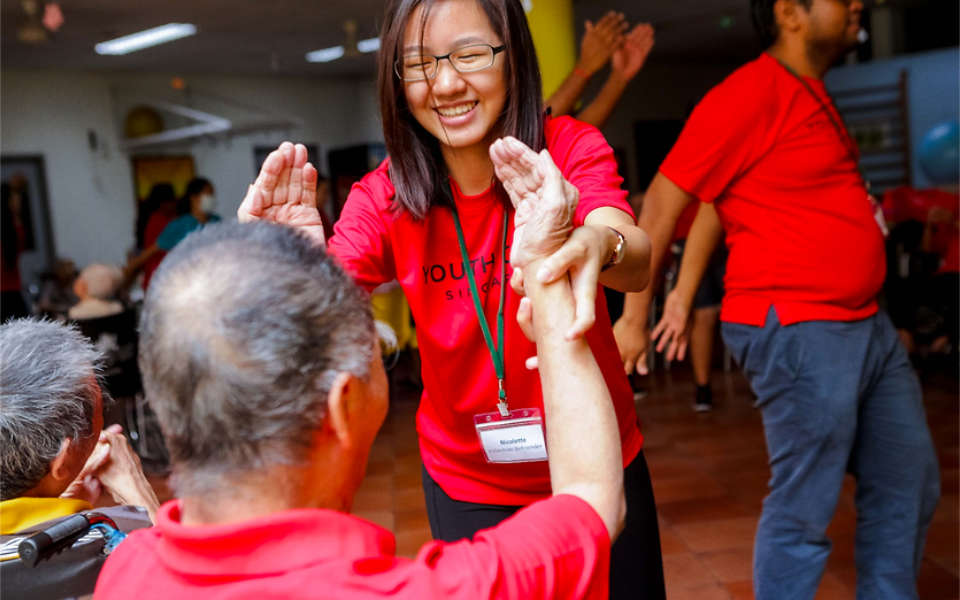When Ong Tian Hua Anthony took to Facebook to register opinions on the topic of event volunteers, he did not hold back! If you too have witnessed situations in which insufficient numbers of volunteers show up to work a race—if confusion reigned at your last marathon and if you’ve witnessed volunteer-related communications breakdowns that dramatically impact a race’s operations, you probably agree with him.
Is there a solution? According to plenty of opinionated people, there is and it’s a solution that comes with serious ramifications: Would paying event volunteers solve the aforementioned problems or is the structure of today’s marathon a breeding ground for discontent that can’t be mediated with money? This subject is loaded with landmines but solutions are available if people in charge of running Singapore events come together.
Why decision-making must be an ethical process
According to educators at The University of California at San Diego, the process of making ethical decisions may not be easy but it’s critical if those decisions are to stand the test of time.
Parties within the Singapore running community who are worried about the current volunteer crisis must commit to doing the right thing, “regardless of cost,” say academicians. At the heart of the process is the agreement among parties to collect and evaluate information about consequences and risks, which is how the question of paying volunteers must be approached.
Sound too confusing? It’s not. The benefits of going through an ethical process of deciding whether or not to pay volunteers deserves to be discussed if only to ascertain whether money can resolve current dilemmas that are fuelling this controversy.
Further improvements in volunteerism must be measurable if they are to show sponsors, organisers and other principles that money may be a solution, but it doesn’t necessarily equate to respect, fairness, caring and trust.

Questions to be asked before making a decision
- How extensive is volunteer exploitation by event organisers? Does it depend upon the event or is the problem so systemic and rampant, it exists whenever a running event is staged?
- Are there checks and balances in place that prevent volunteers with ulterior motives that have nothing to do with donating time to the community be identified, or is it impossible to do so because it’s too time consuming?
- Should an authority be responsible for writing a definitive guide on the subject of the care and feeding of volunteers that takes into consideration essential topics like benefits, training and proper treatment?
- Is there a movement within Singapore’s running scene that advocates on behalf of paying volunteers? If so, should that expense be borne by event sponsors or should registration fees be bumped up?
What runners have to say
At RunSociety, we love to poke fun at various aspects of running life, so posting an article called “Why You Should Never, Ever Think About Volunteering at Races” is actually a love letter to the unselfish actions of volunteers who offer their services solely to contribute to the community.

But outspoken runners, like the aforementioned Ong Tian Hua Anthony, concede that problems with volunteers have grown so pervasive, the topic can no longer be ignored. In his scathing review that profiles the behaviours of volunteers managing the 2017 Standard Chartered Singapore Marathon, he did not mince his words: “I believe that even a 5-year-old can see that almost everything can be done a lot better. In short, what the hell are you doing?”
Here's a summary for the TLDR people:
1. There is insufficient manpower because volunteers who withdrew are not…Posted by Ong Tian Hua Anthony on Monday, 4 December 2017
A correlation between a rise in volunteerism and a decline in volunteer dedication?
This conundrum was articulated when Janice Lim writing for Channel News Asia, promoting the results of a volunteerism study conducted by the National Volunteer and Philanthropy Centre. According to findings, volunteerism in Singapore nearly doubled between the years of 2014 and 2016, and that number is expected to rise in the years ahead.

So, if there are plenty of volunteers to go around and that number is expected to increase, how does paying them improve things when there is obviously some breakdown or dynamic that assails volunteers somewhere between the point their idealism and eagerness to volunteer dissolves into lacklustre behaviours?
Thomas W. McKee has tried to understand why volunteers morph from enthusiastic souls to apathetic participants who eventually give up and quit for a number of years. According to McKee, here are the true reasons volunteers slack off and eventually quit:
- There’s no flexibility in scheduling or tasks.
- Too much time is wasted on unproductive activities and meetings.
- Nobody communicates properly to volunteers.
- People in authority lack professionalism when they deal with volunteers.
- Volunteers stop feeling that they are making a difference—which is the reason they volunteer to begin with.
- Many volunteers admit that they feel they are taken for granted and not valued.
- Reporting to a leader who has no clue how to lead volunteers so they want to continue.
Food for thought? You bet—but we’d like to know where you weigh in on a topic that will only continue to grow worse if something isn’t done.
Are you in favour of paying volunteers to perform their duties or do you believe that the only way to turn this situation around is to make volunteers feel more valued?





